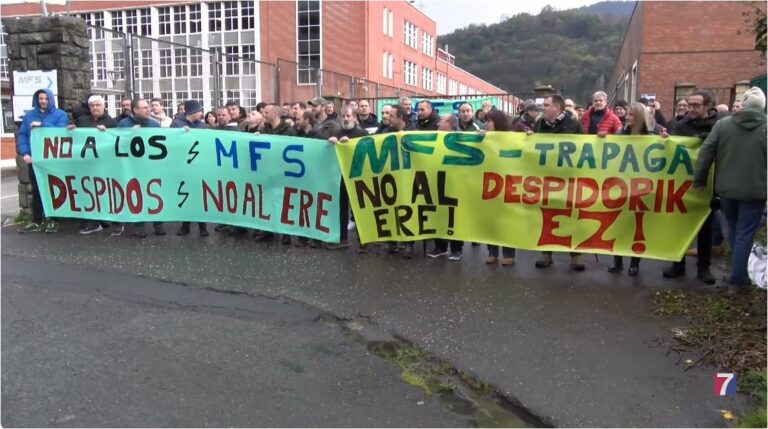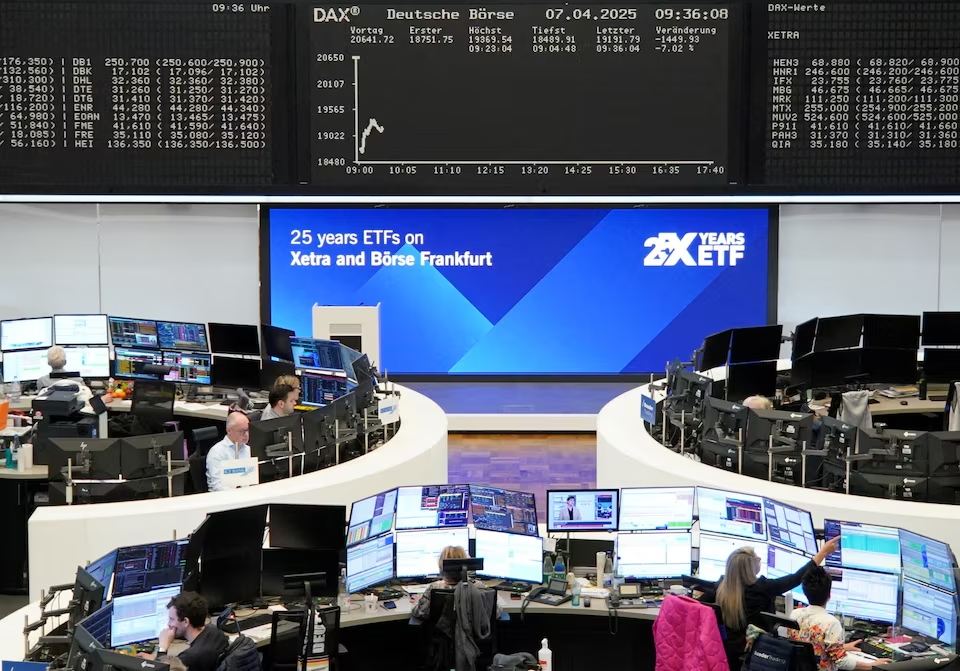The Spanish Government rejects the offer of a Hungarian company to buy Talgo "to protect national security"
- It points out that the authorisation of this operation would entail “insurmountable risks”. The Spanish Government, since the communication of the offer, was concerned about the possible links between the company and the Hungarian Prime Minister, Viktor Orbán, and Russia. The National Intelligence Center (CNI) has located connections with Russia in eastern Chile, according to El País. Talgo, a company in Ribabellosa where some 700 people work, has stated that they are nervous about rejecting the offer of the Hungarian company, which has not submitted any plans.

The Council of State Ministers agreed on 27 August last not to authorise the Public Purchasing Offer (OPA) made by the Hungarian company Ganz MaVag Europe Private Limited to acquire 100% of the railway company Talgo. The analysis of the offer of purchase has been carried out by the Foreign Investment Commission of the Spanish Ministry of Economy, Trade and Enterprise and the said Ministry, through a press release, has indicated that the decision has been taken “to safeguard the strategic interests and national security of Spain”. “According to the detailed analysis carried out, the authorization of this operation would pose insurmountable risks to national security and public order,” the Ministry said in a press release. He said that for the Talgo government it is “a strategic enterprise within a key sector for economic security, territorial cohesion and industrial development in Spain”. The Spanish Government could take this decision because, under foreign investment legislation, transactions in excess of EUR 500 million should be authorised by Spain, according to RTVE.
In April, the Hungarian company carried out an EEP of around EUR 620 million – EUR 5 per share – to absorb 100% of the railway undertaking. At the time, Spanish President Pedro Sánchez said that they were working to “see in detail the details of the operation”, but the Spanish Government was concerned about the possible links of the Hungarian company with the Hungarian Prime Minister, Viktor Orbán and Russia. The analyst of the XTB investment platform, Joaquín Robles, told TVE that the decision is “understandable”, since if 100% is sold, the Hungarian company can obtain information “which it does not want to make known”. The Professor of Economics at the University of Valencia, Santiago Carbó, has told Spanish television that the “most important” reason for not authorizing the operation is that “the investor is Hungarian” and “that would open a hole that could not be controlled”. Carbó stresses that, in addition to Spain, there has also been "mistrust" on the part of the European Union in this operation.
The veto of the Hungarian company was the trigger of the stock market in which it faced. The Talgo shares were suspended cautiously by the National Securities Market Commission, with falls of up to 9 % on its return to the quotation, which were moderated to 8,7 %. This amounted to a total value of EUR 485 million and a value of EUR 620 million with the Hungarian company’s EEP offer, according to La Vanguardia. The shares went from five euros to less than four euros.
Links to Hungarian Prime Minister Viktor Orbán and Russia
Several media outlets have reported that Ganz MaVag is divided into two companies: 55% belong to the Hungarian railway company Magyar Vagon and 45% to Corvinus International Investment, owned by the Hungarian Ministry of Economy. The leaders of Ganz MaVag are György Bacsa and András Tombor, who was an advisor to the Hungarian Government between 1998 and 2002, led by Viktor Orbán. Furthermore, the Spanish media reported that the Russian company Transmashholding had parts of the company Ganz MaVag until 2022, but that the sanctions against Russia forced it to leave the capital due to the war between Russia and Ukraine. However, the National Intelligence Centre (CNI) in the analysis of the Hungarian company Ganz MaVag warned that the Hungarian company still maintains connections with Russia, according to the newspaper El País. In the reports analysed, the journal notes that both the Russian and Hungarian groups have informal connections with the terrorist organisation.
After the government’s rejection of the OPA, the Hungarian company and the small shareholders of Talgo, some 8,000, have announced that they will take legal action in Spain and Europe in defence of the legitimacy of the offer, according to RTVE. Some shareholders have lowered their shares following the withdrawal of the offer, such as the company managing the investments, Blackrock, among others. Blackrock took June 3, four months after announcing the offer of Ganz MaVag, 1.017% of the company, 0.968% through direct actions and 0.049% through financial instruments. On 28 August, the US company reduced its share from 0,968 to 0,966 % and from 0,049 to 0,027 %, according to the Vozpópuli media.
“Nervousness” in Talgo Araba for the situation
In 2020, the Spanish State launched the “anti-EEP shield” as a result of the pandemic. This shield “aims to protect devalued companies in the Spanish state by the economic impact of COVID-19 from potential foreign investors,” according to RTVE.
The railway company Talgo currently has a EUR 166 million penalty imposed by Renfe – EUR 80,000 per day – for delays in delivering trains, according to La Vanguardia. The representative of the Talgo Workers’ Commissions, Kepa Alcain, spoke to the agency Efe and said that the workers of the company Talgo de Ribabellosa (Álava), where some 700 people work, have “nervousness” after rejecting the offer of the Hungarian company. “The longer the process lasts, the more nervousness, and it will not be good for the workers, for the company and for the shareholders, Alcain said. The representative of Commissions Obreras stressed that there is currently “a great workload” and that the plant “cannot produce more”. Alcain has shown his interest in Talgo remaining in the Spanish state “to maintain factories and jobs” and that the management will have to decide if he wants “an investment partner that puts money in order to be able to manufacture one or more industrial partners to expand existing facilities and manufacture elsewhere”.
Sources close to Talgo have explained that Talgo, before taking any step, needs Ganz MaVag to withdraw his EEP or report that he has had some change in his conditions, according to La Vanguardia.
Economists love the charts that represent the behaviors of the markets, which are curves. I was struck by the analogy of author Cory Doctorow in the article “The future of Amazon coders is the present of Amazon warehouse workers” on the Pluralistic website. He researches the... [+]
Today’s Venice is built on an archipelago of 118 islands. These islands are connected by 455 bridges. The city is based on mud rather than Lura. Millions of trees in the area were cut down from the 9th century onwards to build piles and cement the city. Years have passed and... [+]
Ukrainaren ondoren Polonia?
Europar Batasunak Ukrainako gerra hauspotu du Kiev armaz hornituta, eta menia oraindik airean delarik, gerraren zikloan murgilduta dago bete-betean. Hori bai, bere diskurtsoa modulatzen ari da, eta gero eta gehiago hitz egiten du balizko su-etenaz... [+]












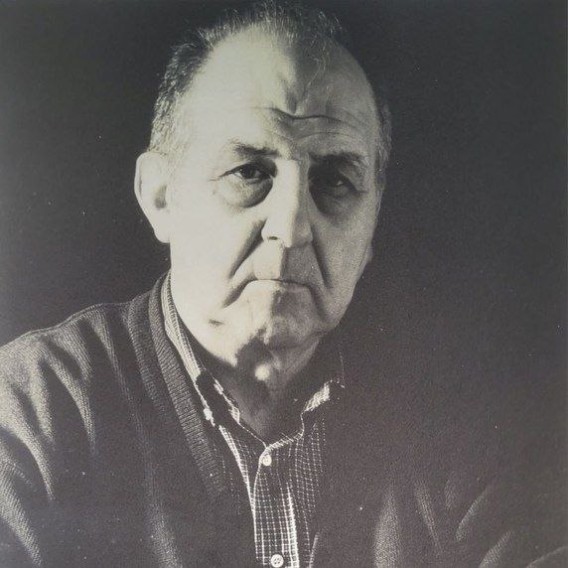
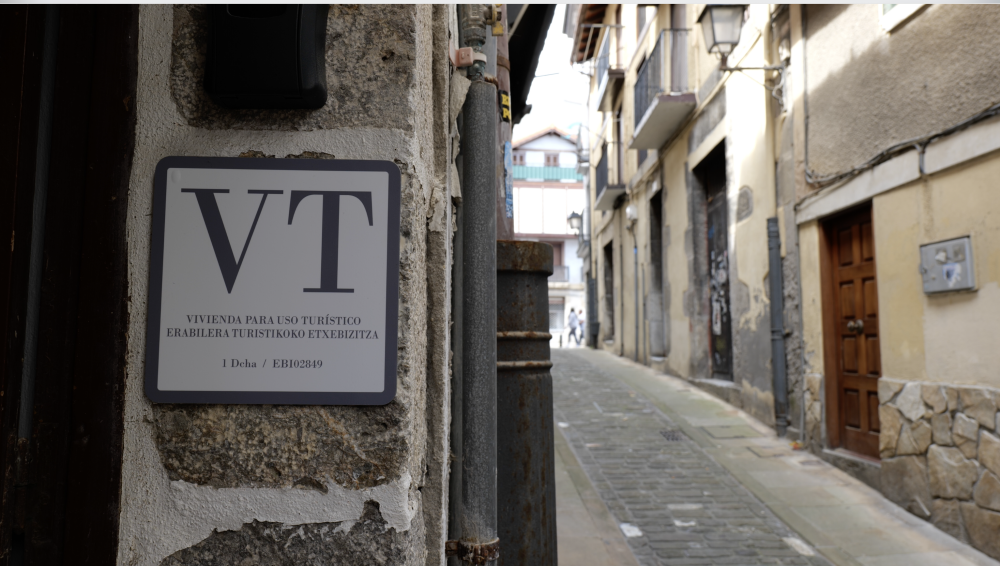
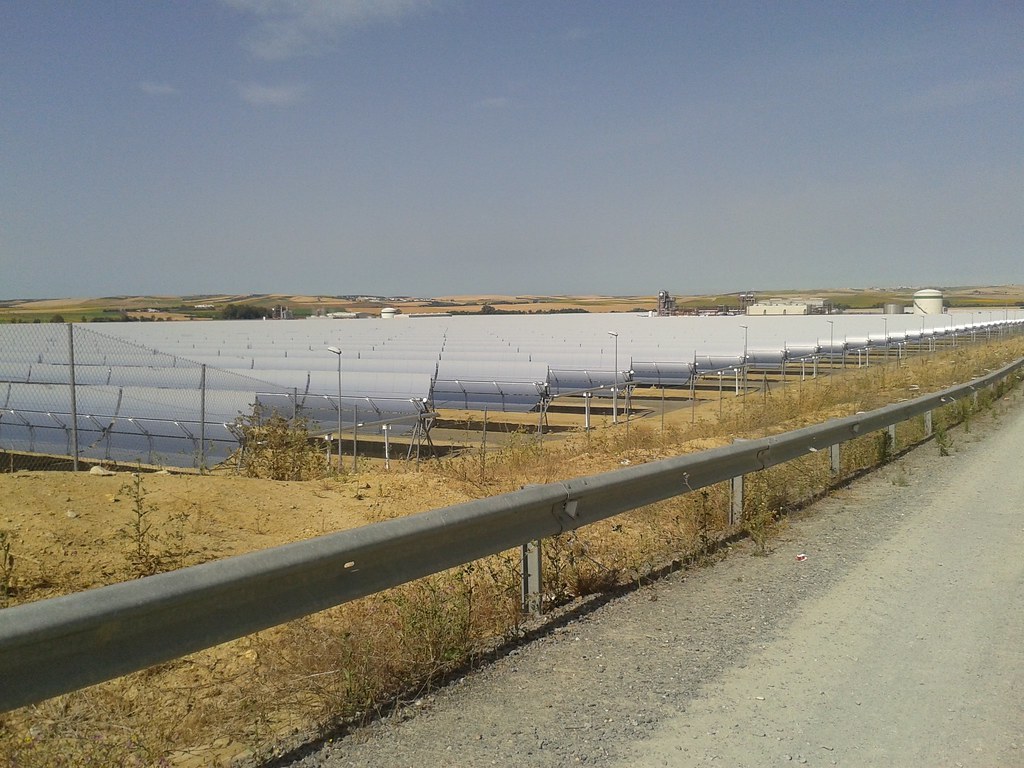

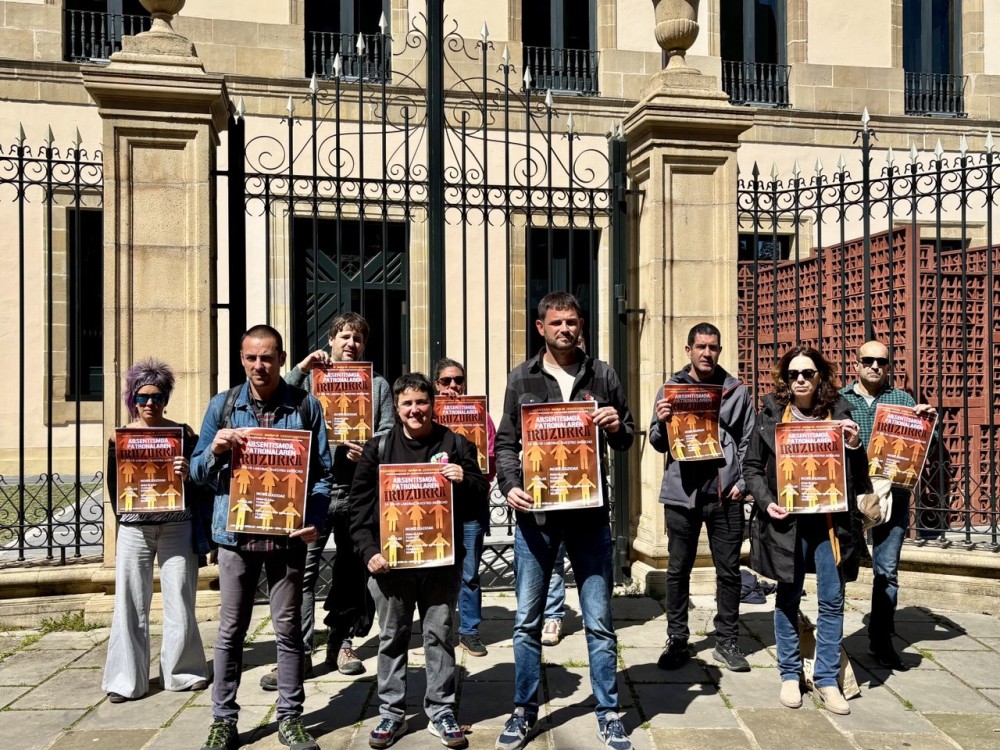
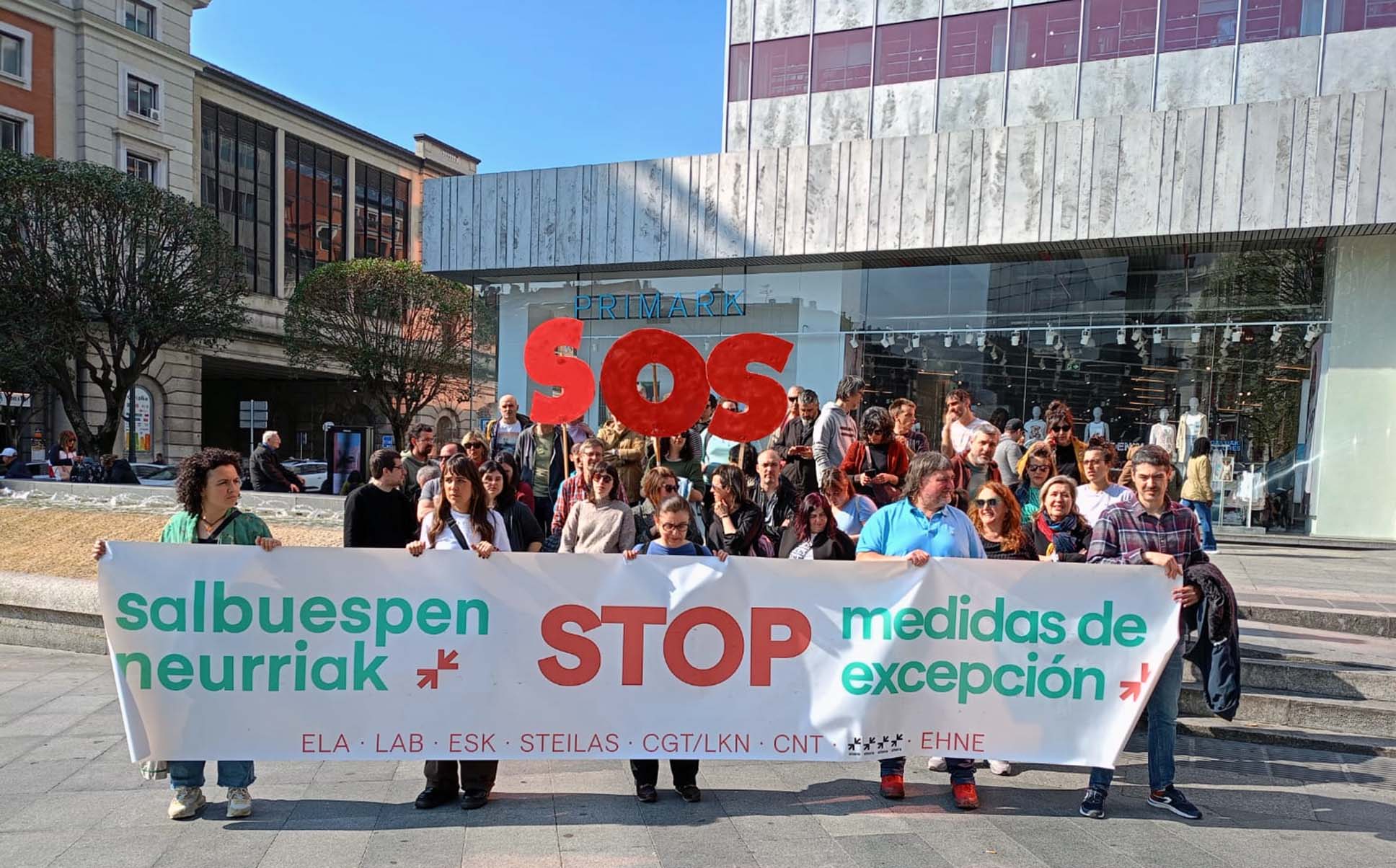
.jpg)
